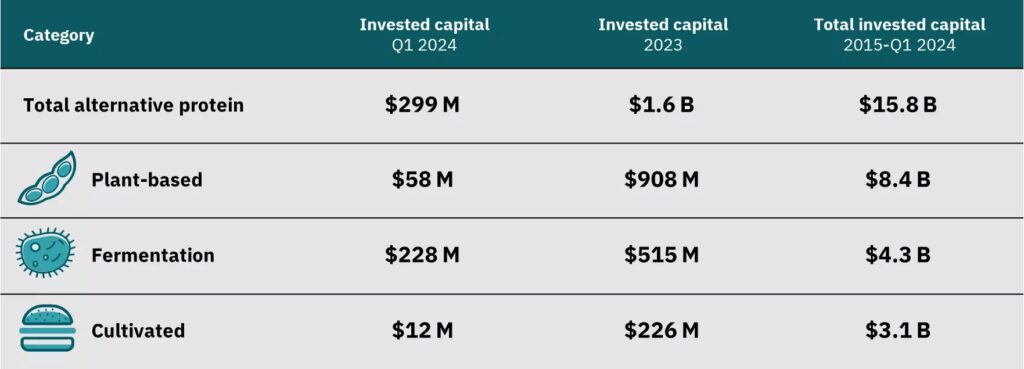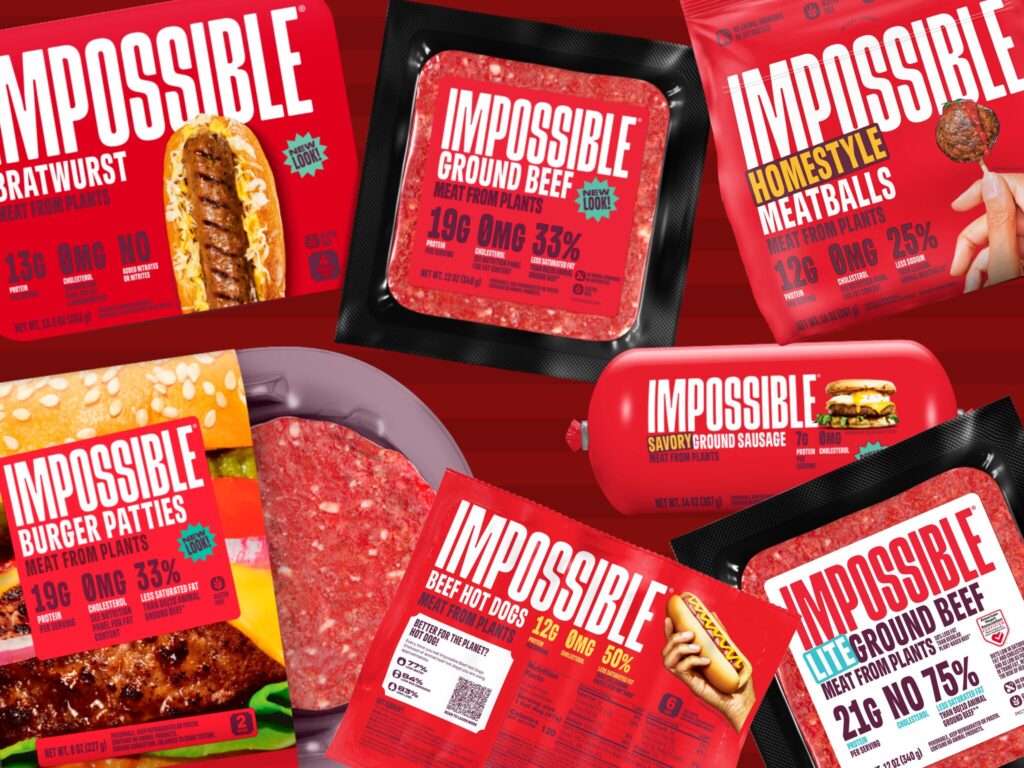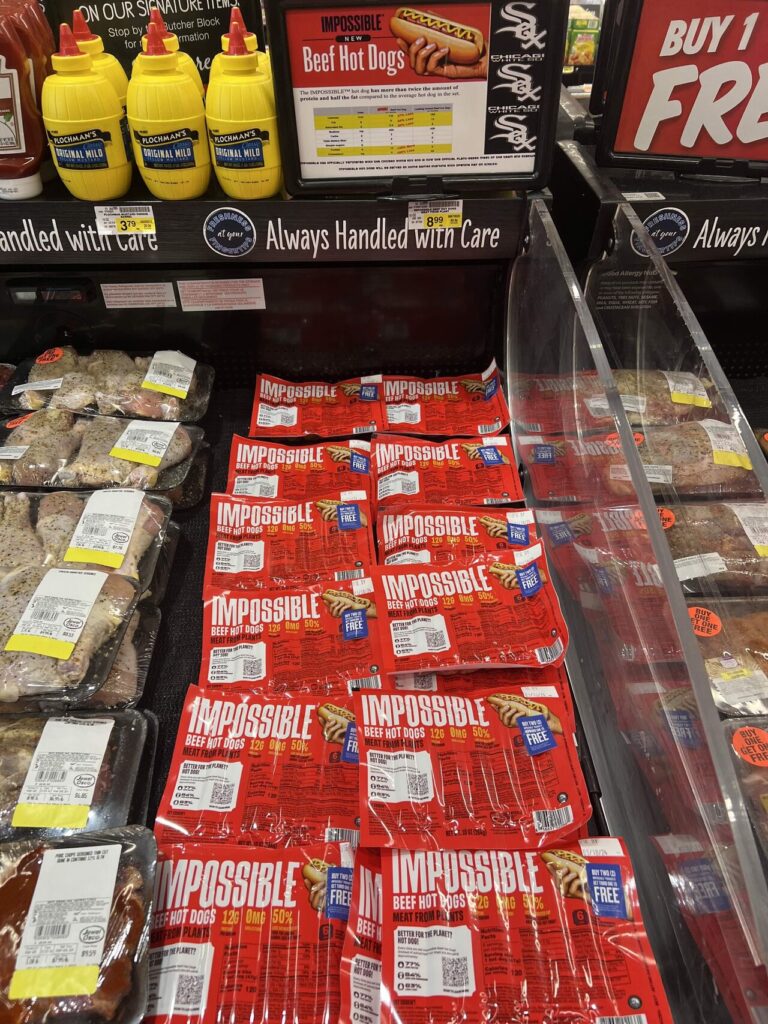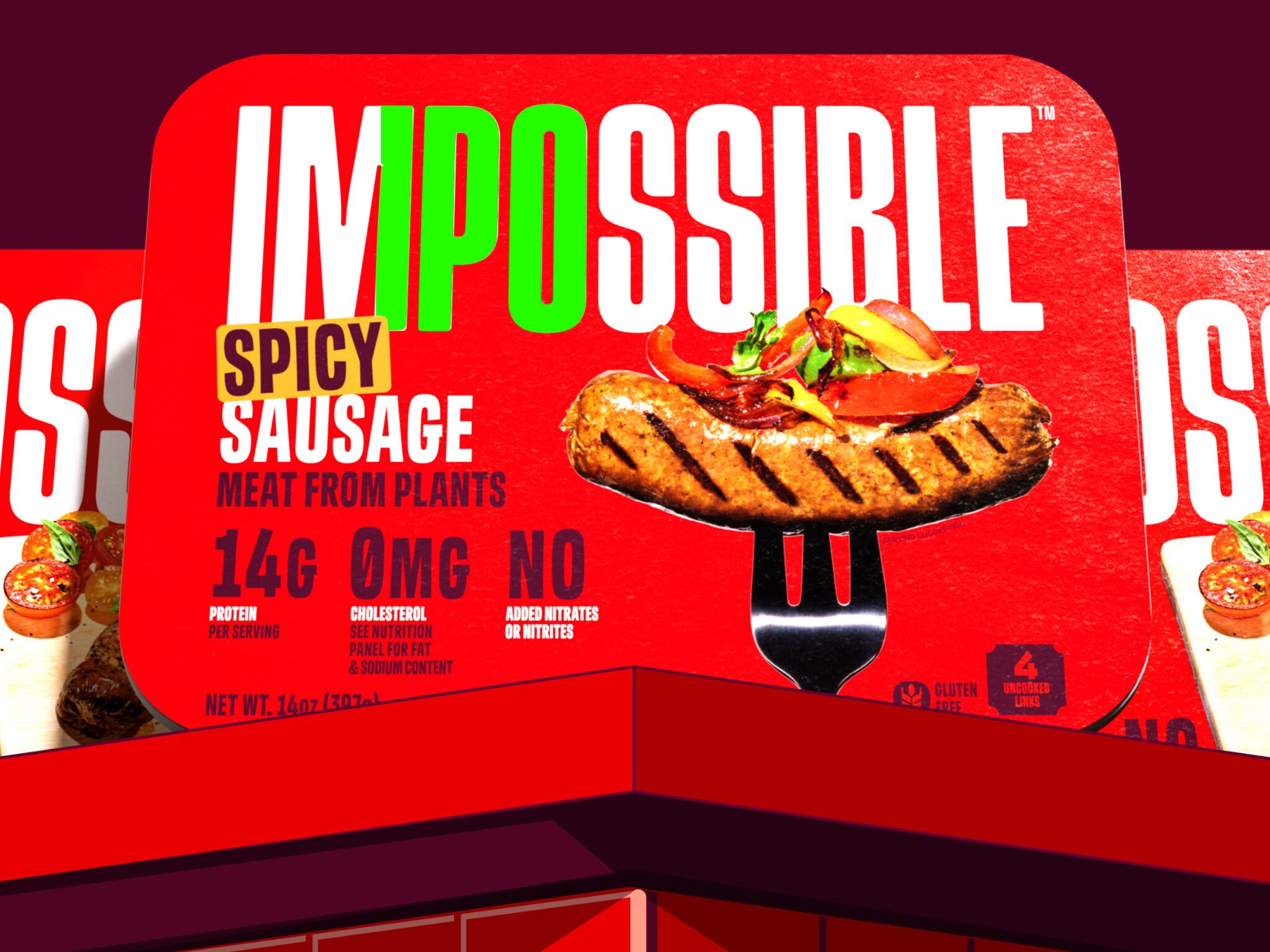Impossible Foods Weighs Up ‘Liquidity Event’, Including Possible IPO or Sale in 2-3 Years
5 Mins Read
Impossible Foods is considering a “liquidity event” that could see the plant-based meat giant raise more capital, go public or even be sold to another company in the next few years.
As plant-based meat fights back after a difficult couple of years, one of its pioneers may be exploring moves that could signal a sea change for the industry.
Speaking to Reuters, Impossible Foods CEO Peter McGuinness indicated the business is exploring a “liquidity event” in the next two to three years – if that materialises, it could mean an IPO for the California-based company.
But it’s keeping its options open over what this might entail. “I don’t want to be pigeonholed into an IPO,” explained McGuinness, adding that Impossible Foods was also considering another raise of funds, or even a potential sale to another company.
It’s also worth noting that the plant-based meat maker may not end up doing any of the above, instead continuing to chart its current course – Impossible Foods has previously said it is the fastest-growing major vegan brand in the US.
Navigating a tricky investment landscape
This isn’t the first time Impossible Foods has been linked with an IPO. In 2021, it was preparing to go public with a reported valuation of $7-10B, raising $500M the same year. Founder and then-CEO Pat Brown told Bloomberg that a stock market listing was inevitable for the company, explaining: “You have easier access to capital to support growth, but more importantly to me, there are millions of non-billionaires out there who are very, very supportive of our mission but they don’t have a chance to share in our success.”
But in early 2023, McGuinness – who took over from Brown in April 2022 – suggested the company wouldn’t be going public that year. “We’ll do an IPO when we need to do an IPO,” he said at the time.

But his latest comments come as plant-based businesses face pressure from inflation and the cost of living, misinformation in the media, and a loss of faith from investors. On the latter, investments in plant-based foods fell by nearly a quarter 24% from 2022-23, reaching $907M. Companies across the food tech sector have found it hard to raise money, with a 61% drop in investments last year, according to industry think tank the Good Food Institute (GFI).
Meanwhile, retail sales of plant-based food have also dipped slightly to $8.1B (a 2% decrease), though meat and seafood analogues faced a larger 12% decline in the US. But industry experts remain positive, thanks to a new wave of plant-based products that better meet consumers’ demands. “We expect a wave of plant-based 2.0 products and a steady flow of new product success stories that will generate a new narrative for the alt-protein category, leading to improved investment conditions for startups,” says Hédi Farhat, investment manager at ProVeg Incubator.
The dire investment landscape also seems to be passing. GFI had suggested that the financing totals are likely an underestimate as a greater number of funding rounds have been kept under wraps given there were more simple agreements for future equity (SAFE) and bridge rounds in 2023. But the next year is expected to remain challenging for plant-based companies – in the first quarter of 2024, startups in this sector only secured $58M in funding, a mere 6% of last year’s total.

All of this to say, if Impossible Foods does end up attempting to raise capital, it may not be as swift as the last time. However, as a market leader that has already bagged nearly $2B (just under a quarter of all investments in the sector since 2015), it’s hard to bet against it.
Industry will keep a close eye on Impossible Foods
McGuinness’s interview with Reuters comes at a curious time. Just last week, Bloomberg reported that Goldman Sachs is in talks with credit lenders seeking $250M to shore up capital for fellow plant-based meat giant Beyond Meat. It was suggested that the debt would be used for general corporate purposes and to repurchase some of its $1.15B convertible bonds at a discount.
This followed Beyond Meat’s end-of-year earnings report, which revealed that while the company had been performing better than expected in the last quarter, its annual revenue was down by 18%. Since then, Beyond Meat has launched multiple revamped product lines and increased product prices.
Impossible Foods has itself introduced a new beef hot dog and a brand refresh, which featured a much greater focus on flavour and nutrition – the two chief factors dictating plant-based consumption now. “We’re not leading with the planet because not enough people care. It’s the reality now,” said McGuinness.

A company spokesperson told Green Queen after the rebrand that sustainability “is and always will be our reason for being”, noting that it’s still part of its packaging and across various touchpoints of the consumer journey. “However, we realised we can get even more consumers in the door by leading with our incredible taste and nutritional quality – then, we can seal the deal with the environmental benefits,” they added.
In the meantime, Impossible Foods has been expanding both its retail and foodservice footprint. The company’s distribution expanded by 25% in January alone, with its products available in over 75,000 locations worldwide. Just today, it has announced a deal with Whole Foods to place its chicken analogues on the shelves of select stores across the US.
But as inflation squeezes consumer budgets, many are turning to cheaper products like canned meats and inexpensive retailers like Dollar General and club stores like Costco. McGuinness said that Impossible is open to expanding into dollar stores, adding: “We have a good club business.”

The company has also been moving into baseball stadiums across the US, extending an exemplary foodservice record that includes clients like Burger King (it’s featured in the signature Impossible Whopper), Starbucks, IHOP, White Castle and Disney.
McGuinness declined to share his company’s current valuation, but Impossible Foods’ next move will be closely watched, especially given the post-IPO challenges faced by other plant-based giants like Beyond Meat and Oatly, whose stocks have slumped by about 97% since going public in 2019 and 2021, respectively. Will it be a sale? Another fundraise? A public offering? Or nothing apart from continued growth? Everything is on the cards.




